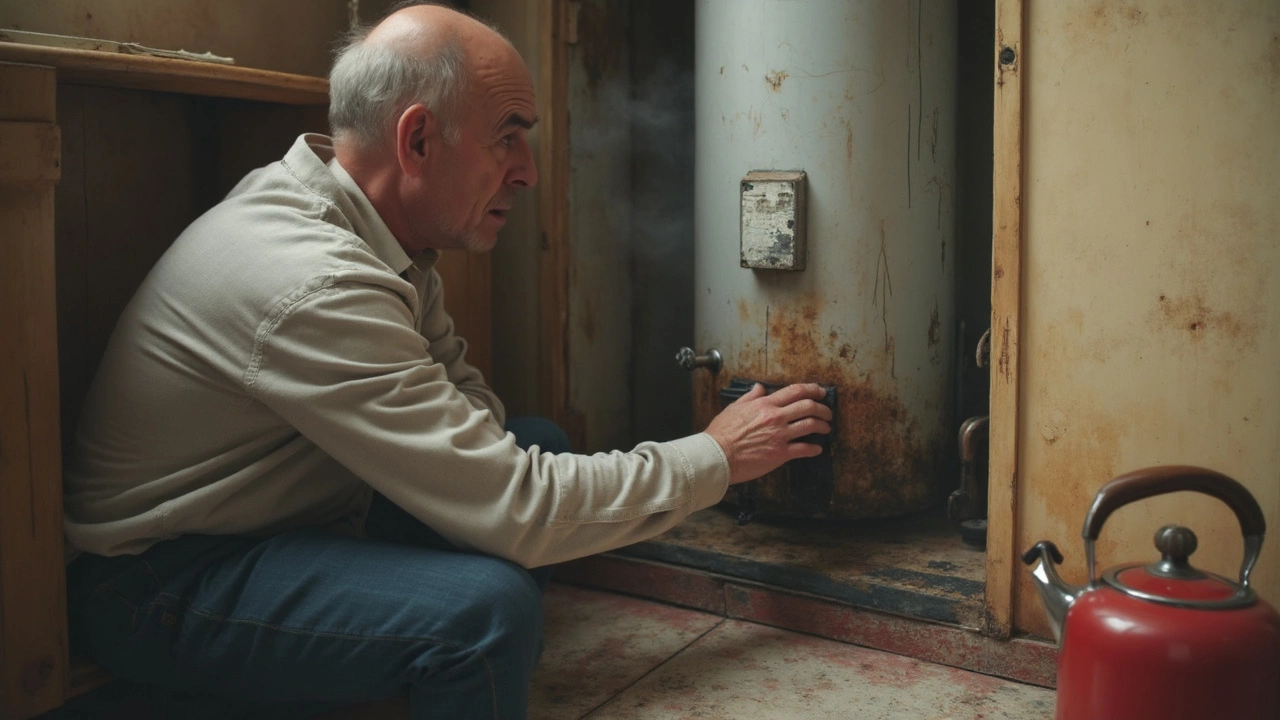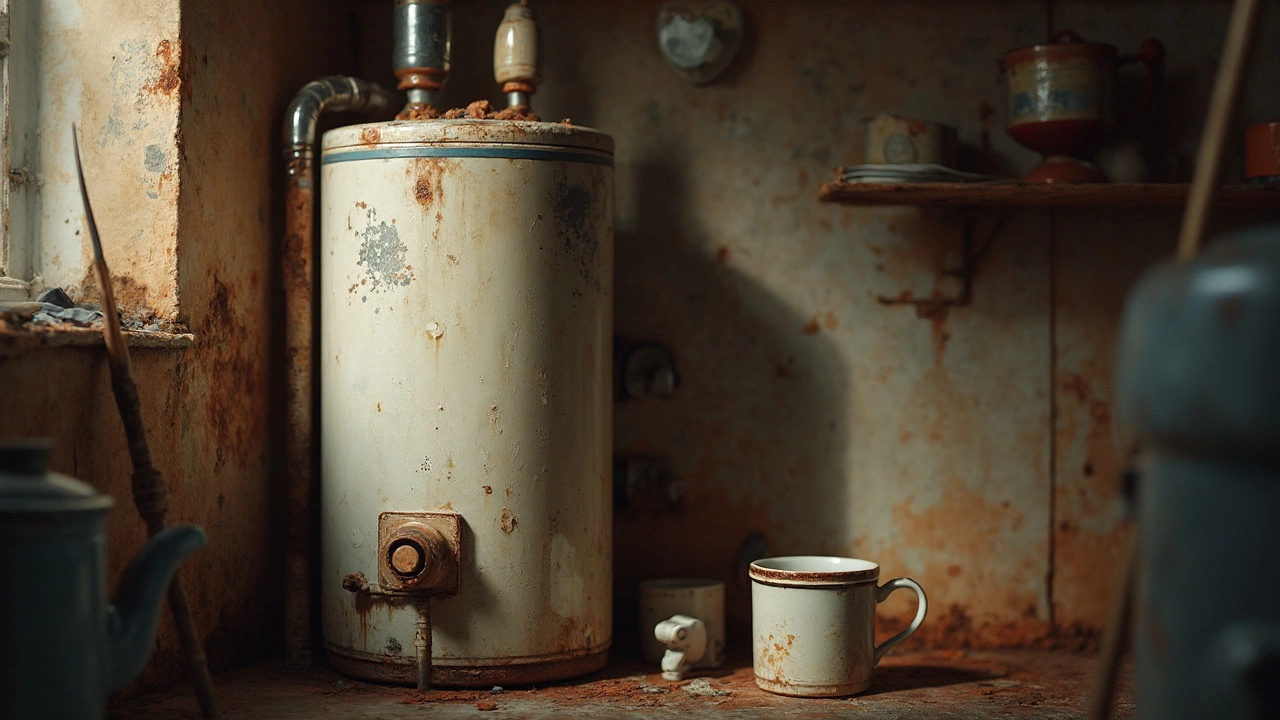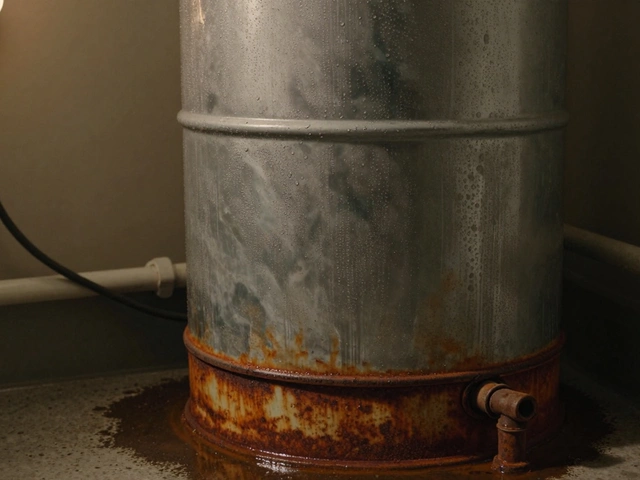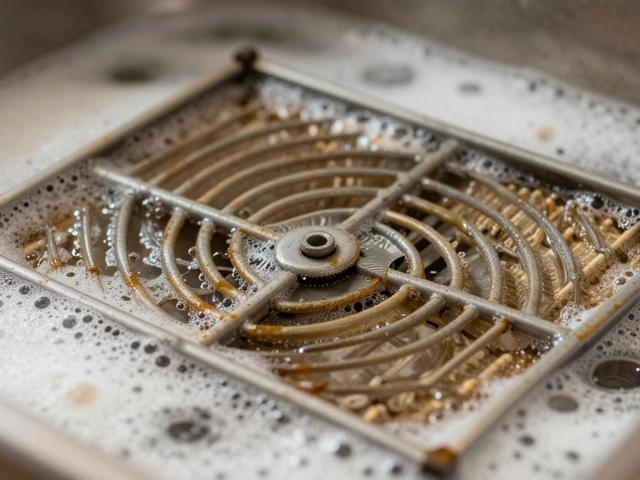When it comes to water heaters, choosing one that lasts can make a significant difference in your home and your pocket over the years. With so many brands on offer, understanding which ones stand the test of time can be quite overwhelming. Fear not—this guide is here to help you navigate the essentials.
We'll dig into what makes a water heater not just good, but great, in terms of durability and reliability. It's not just about picking a brand that's popular, but rather one that consistently delivers outstanding performance. So, if you're on the lookout for a water heater that won't give up on you, read on for some valuable insights!
- Understanding Water Heater Lifespan
- Leading Water Heater Brands
- Factors Contributing to Longevity
- Maintenance Tips for Prolonged Life
- Consumer Reviews and Recommendations
Understanding Water Heater Lifespan
The lifespan of a water heater is often a topic of much debate among homeowners and experts. Generally, you can expect a traditional tank-type water heater to last around 8 to 12 years, while a tankless model can push the limits to about 20 years, thanks to its on-demand heating mechanism. However, these estimates can vary depending on several factors such as the quality of the unit, installation, location, maintenance, and water quality. It's fascinating how these factors intertwine to either shorten or extend the life you get from your water heater.
Quality plays a crucial role in brand longevity. Units from top-notch manufacturers generally come equipped with features like heavy-duty anode rods, comprehensive warranties, and robust materials that resist corrosion. Speaking of corrosion, water quality is another vital component; hard water, rich with minerals like calcium and magnesium, can significantly affect the longevity of a water heater. These minerals build up inside the tank, leading to efficiency drop, overheating, and eventually, premature failure. Regular maintenance, such as flushing the tank, can help combat these issues and extend the life of your unit by several years.
Installation and location contribute to how long your durable water heaters will last. A poorly installed water heater can face numerous operational issues that can drastically reduce its lifespan. As for location, keeping your water heater in an area that's susceptible to flooding or lacks proper ventilation may result in a quicker decline. Regular maintenance checks can counterbalance these challenges. Securing the help of a certified professional to facilitate the initial installation and periodically checking for visible signs of wear can all feed into the tale of perseverance a reliable water heater tells over time.
The U.S. Department of Energy suggests, "Regular maintenance of your water heater not only extends its life but also keeps it running efficiently, saving you a substantial amount on energy bills."
Statistics from various studies have shown that diligent homeowners who adhere to a routine maintenance schedule tend to get years more from their heaters compared to those who neglect this vital task. It's not just about maximizing the life but the efficiency too. After all, a water heater that consumes less energy to achieve the same results is a win both for your electricity bills and the environment. As consumer awareness around energy efficiency grows, so does the information available on making the best choices for your household needs. Investing in a high-quality, properly maintained water heater is not just smart, it's financially savvy.
Common Issues Impacting Water Heater Lifespan
Wear and tear is an inevitable part of any appliance's lifecycle. For water heaters, this can manifest in several common problems that impact lifespan: sediment buildup, corrosion, and component breakdown. Sediment buildup is a stealthy saboteur. Over time, the minerals and sediment that accumulate in the tank harden and create a thick barrier that the heating element must work twice as hard to penetrate. This not only reduces efficiency but can also cause overheating, leading the elements to burn out prematurely.
Corrosion, particularly in the anode rod, is another factor to watch. The anode rod is designed to attract impurities that would otherwise corrode the tank lining. Once this rod is depleted, the tank becomes vulnerable to rust. Regular inspections of the anode rod and timely replacements can help stave off pervasive corrosion issues. Component breakdown varies between tank and tankless models, but common culprits include failing thermostats, broken valves, and damaged burners. Keeping an eye on these critical components and replacing them as needed can evade bigger, more costly repairs down the line.
Leading Water Heater Brands
When it comes to choosing a water heater, the brand you choose can significantly impact the longevity and efficiency of the appliance you bring into your home. Among the sea of options, certain brands have gained a reputation for producing long-lasting and reliable products. Let's dive into some of the most well-respected names in the industry. One top contender is A.O. Smith, a company boasting advanced technology and a rich history in water heating solutions. Their heaters are often commended for their durability, built with high-quality materials that withstand the test of time. In addition, they offer a variety of models which makes it easier for consumers to find a product that fits their specific needs and budget. Users frequently praise their excellent customer service, which undoubtedly adds to their appeal.
Another brand that has carved a niche in this marketplace is Rheem. Known for innovation, Rheem combines energy efficiency with sturdiness in their products. The company often leads in introducing energy-efficient models that save not only resources but money in the long run. Their modern designs and contemporary technology make them a favorite among eco-conscious consumers. An interesting fact about Rheem is their dedication to sustainability; they have initiatives aimed at reducing their environmental footprint, a commitment not every company matches. Their concerted effort towards greener products represents a future-forward approach that resonates with many homeowners today. This is undoubtedly one of the reasons behind their success and growing popularity.
Other Noteworthy Brands
Bradford White deserves mention as a brand that manufactures water heaters right here in the USA, prioritizing quality control and innovation. Their Defender Safety System, which enhances safety levels during operation, is a unique selling point. The safety and comfort that Bradford White provide has led many consumers to choose their water heaters, acknowledging the company's commitment to high standards and consumer safety. Additionally, Rinnai, a brand particularly revered for their tankless water heaters, offers cutting-edge technology and exceptional longevity. The efficiency that comes with Rinnai's products, not to mention their sleek and space-saving designs, is certainly compelling for those wishing to maximize both efficiency and the use of their living space.
“Choosing a reliable brand can make all the difference in the lifespan of your water heater,” says John Marcus, a recognized consultant in home appliances. “Brands like A.O. Smith, Rheem, and Bradford White are not just manufacturers; they are innovators committed to lasting solutions.”
In addition to these giants, several smaller and niche brands are also worth considering. Each offers unique advantages, with varied warranties and after-sales services, which should always be part of your decision-making process. Remember that home systems are investments, and prioritizing longevity will invariably prove beneficial in terms of performance and maintenance costs over the years. As trends in water heating evolve, keeping an eye out for new developments in technology and environmental applications can lead you to future-forward options that align with your long-term goals.

Factors Contributing to Longevity
When evaluating the longevity of a water heater, several crucial elements come into play. One of the most important is the build quality—quite simply, you need a machine that’s constructed from robust materials. Stainless steel and copper components, for instance, are far more durable than alternatives, providing excellent resistance against rust and corrosion. Equally significant is the design technology, such as advanced tank lining, which combats potential wear and tear over time. This is a vital consideration since tanks are consistently in contact with water, which can lead to a rapid degradation if not properly protected.
The type of water heater—be it tankless or traditional—is another key factor. Tankless water heaters, for instance, often have a longer lifespan than their tank counterparts due to their superior design and efficiency. High-quality tankless systems can last over 20 years, which is a considerable advantage. Such systems also boast the ability to only heat water on demand, reducing the continuous pressure on the system itself. As a result, this type of heater experiences less wear, resulting in a prolonged life.
Another aspect to consider is the manufacturer’s warranty. A longer warranty often indicates a company's confidence in the durability and reliability of their product. Look for warranties that cover essential repairs as well as a potential replacement. Some water heater brands offer warranties spanning up to 12 years, reflecting their commitment to product longevity. It's a good practice to carefully read warranty terms to understand the coverage extent and requirements.
Maintenance practices play a crucial role too. Regular maintenance checks are imperative in ensuring the system is running smoothly. This includes flushing sediment build-up, inspecting anode rods, and adjusting the thermostat settings. For anyone unfamiliar, sediment build-up in the tank can significantly slow down the heating process and cause energy inefficiencies. A simple flush every six to twelve months can prevent these issues. A professional’s eyes now and then can spot potential concerns early, saving you money and extending the heater’s life.
As maintenance technician Joe Harman puts it, "A few minutes spend [spent] every couple of months looking over the heater can save a homeowner hundreds of dollars in repairs and replacements down the line."
Water quality in your area is another aspect not to be overlooked. Hard water, rich with calcium and magnesium, can lead to limescale build-up in pipes and around heating elements. This can drastically reduce the water heater's efficiency and speed up wear. Homeowners living in areas known for hard water would benefit from employing water softeners or filtration systems, which can safeguard the appliance against such threats. Ensuring your water heater is built to suit your local water conditions is key for its longevity.
Ultimately, a combination of excellent design, proactive maintenance, favourable warranty terms, and adaptability to local water conditions all contribute to fostering a long-lasting reliable water heater. Each of these factors outweighs simple brand recognition, making it essential to focus on quality components and thoughtful upkeep.
Maintenance Tips for Prolonged Life
Taking care of your water heater can significantly boost its lifespan, ensuring it serves you efficiently over the years. Regular maintenance isn't just for preventing issues but also for optimizing performance, conserving energy, and ultimately saving money. Simple actions, such as monitoring the temperature settings, can have profound long-term effects. It's best to set the thermostat to around 120 degrees Fahrenheit. This temperature is safe for household use and effectively limits mineral buildup and corrosion inside the tank.
Flushing your tank at least once a year is a simple yet effective strategy. This involves removing sediment that accumulates at the bottom of the tank. Over time, sediment build-up can obstruct heat transfer and reduce efficiency. To do this, simply attach a garden hose to the drain valve, direct it to an appropriate drainage area, and flush with cold water until the water runs clear. While this process might seem basic, it's invaluable in extending the life of your heater.
Another somewhat overlooked practice is inspecting the anode rod regularly. This rod attracts minerals and impurities that would otherwise corrode the tank lining. Checking it every three years—more frequently if you have hard water—can make a tremendous difference. If you find that the rod is heavily corroded, don't hesitate to replace it. This small component plays a decisive role in determining the durability of your water heater.
Regular Professional Inspections
Every couple of years, it's wise to have a professional inspection. Professionals can spot potential issues that are not easily noticeable to untrained eyes, such as minor leaks, faulty valves, or deteriorating seals. Hiring a professional for regular check-ups ensures that your system operates smoothly and also gives you peace of mind. By doing so, you can also glean maintenance advice specific to your model and water usage habits.
"Routine maintenance for your water heater is crucial for its longevity. Addressing seemingly trivial issues promptly can prevent substantial repair costs later," emphasizes Harold Rent, an expert in home appliance maintenance.
- Check for leaks around fittings regularly.
- Listen for unusual noise during operation, indicating potential debris buildup or mechanical faults.
- Keep an eye on the pressure and temperature relief valve, ensuring it functions as it should and safely releases excess pressure.
A small investment of time and diligence in caring for your water heater can prolong its efficiency and save you from unexpected breakdowns. Overlooking routine upkeep not only risks performance issues but also jeopardizes safety. Always remember, a well-maintained heater not only ensures consistent hot water flow but also adds value to your home in the long run.

Consumer Reviews and Recommendations
Choosing the perfect water heater for your home can feel like navigating a labyrinth of options. Reviews and recommendations from fellow consumers offer priceless guidance. People who have used these systems day in and day out provide insights that marketers seldom highlight. Their firsthand experiences may reveal how a brand handles a sudden malfunction or how energy-efficient their model really is in day-to-day use. Online platforms are swamped with consumer ratings, and it's no surprise that brands like Bradford White and Rheem often top these charts for reliable water heater systems. Both brands have built a considerable reputation over the years, backed by diverse offerings that cater to varying home needs, be it a modest apartment or a bustling family household.
When digging through reviews, you should pay attention to recurring themes and issues. Does a particular model consistently get high praise for energy efficiency? Maybe another gets frequent mentions for its easy installation process, saving you potential headaches. Reading through these detailed reviews reveals true longevity tests from people who've run these systems through their paces for over a decade. Consumer Report statistics reveal that Rheem's models have a strong satisfaction rate, reaching as high as 87% in surveys focused on product reliability. This kind of data is a treasure trove if you're prioritizing brands known for their longevity.
"Our family switched to an A.O. Smith water heater two years ago, and it has transformed our showers and utility bills. I used to dread the early morning shower blues with our previous heater, but this model stays consistent!" - Clara J., Verified Buyer
Embracing diverse viewpoints is key. Some go into the nitty-gritty of technical specs, while others strip it down to pure personal experience. It’s not uncommon to read about someone’s two-decade-old Kenmore still going strong, despite its retirement happening a few years earlier than planned. The benefit of such long-term use stories is that they guide you in identifying brands that offer lasting value over mere immediate gratification. They show who sticks around after the warranty period ends and which systems maintain their durability ten years down the line.
It’s also wise to consider platform specifics when weighing reviews. Detailed insights from forums or specialized home improvement websites may carry more weight than those on generic retail platforms. Sometimes, scouring through these platforms might even reveal expert tips shared by technicians who frequently install these devices. An electrician once remarked on a forum how he ends up replacing far fewer AO Smith models due to their durable construction and straightforward maintenance. This anecdote underscores that brand recommendations are not confined to pure customer satisfaction but extend to professional endorsements as well.





